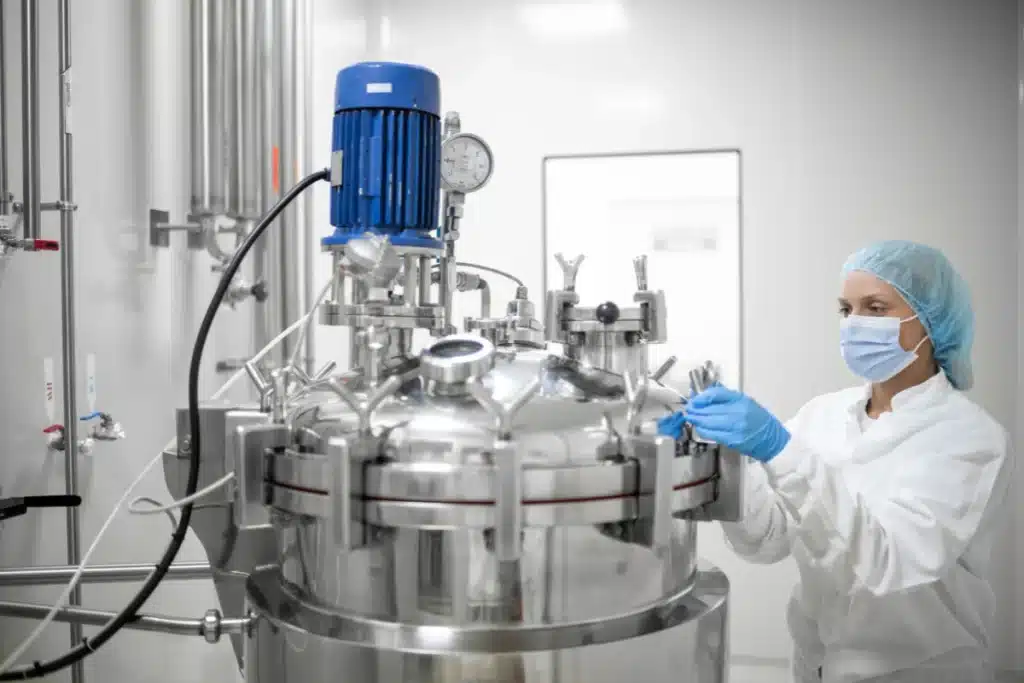The food and beverage industry is slowly adopting new technology in its practice. Recipe management helps these food distributors stay ahead of the curve by guaranteeing more effective medically tailored meals. Since it’s a complex process that demands a lot of organization and coordination, you might need enterprise resource planning or ERP.
Food ERPs simplify the recipe management function by automating most processes, increasing your company’s efficiency. They provide all the features to create and manage recipes, track inventory, and generate production reports. Here is all you need to know about ERP and food ingredient management.
How ERP Helps with Food Ingredient Management
Food manufacturers and distributors often deal with an ever-growing list of requirements. Keeping up with these long and complex lists and activities might prove challenging for most, and that’s where ERP helps. The following are reasons you need to consider implementing an ERP for food ingredient management.
Compliance and Regulatory Requirements
The Food and Drug Administration has put many requirements in the United States for businesses in the industry. Not having a food-specific ERP makes it more challenging to accomplish these requirements. The ERP will help identify the necessary actions to ensure your processes and products meet your region’s compliance standards.
According to the Food Safety Modernization Act 2011, the FDA has new powers over food growth, harvesting, and processing. The primary reason for this regulation was to improve food traceability and consistent quality.
Lot Traceability
The FDA requires food manufacturers to create and maintain records, making lot traceability easy. However, an ERP further simplifies the function by ensuring the records feature vital data elements for different tracking events. They include growing, creating, receiving, shipping, and transforming.
All food businesses must maintain many traceability program records for the products shipped. It indicates the food’s origin, transformation, and creation and can be paper or electronic.
Food Recalls
Implementing a food ERP makes dealing with recalls significantly effortless. Foods aren’t static; they combine different items depending on a recipe and are introduced to the market. It is necessary to ensure each food item is controlled and the product managed in case of a recall.
You’ll need an effective system to deal with the several regulations surrounding recalls. It should track all ingredients used from start to finish, identify the lot numbers affected, and show you how the products moved through the supply chain. Modern ERPs like GoldFinch can facilitate mock recalls to test the procedures involved during a recall.
Recipe Management
Your ERP also plays a crucial role in recipe management for food businesses, especially those with medically tailored meal programs. The system provides accurate inventory management and selection process, ensuring each food item used is known and recorded.
Recipe management for food businesses is more than a defense mechanism against lawsuits and recalls; it helps boost the patient’s overall health. The function also helps with data conversions like units of measurement to streamline purchasing, storage, shipping, and selling.
You might have noticed all food products come with a list of ingredients on their labeling. Streamlining your recipe management means your labeling accurately shows the ingredients, allergens, and nutritional information. And the only way to do this is to implement an adequate food ERP for your business.
Batch Management
You’ll need a batch management system to maintain quality consistency across batches. Food items require a higher level of consistency in keeping taste, texture, smell, and nutrition. Implementing a food ERP allows your business to store quality measurements for each product in all batches and use them as a measuring standard.
What To Look for In an ERP for Medically Tailored Meal Ingredient Management
Businesses in the food and beverage industry must increase their competitive advantage by implementing an adequate food ERP. It is specific to food businesses and significantly increases your company’s chances of realizing its goals. Here is what your ideal food ERP should provide.
Comprehensive Solution
Your ideal food ERP should help solve problems across the entire organization. Implementing one means you eliminate data silos and unite all company data in centralized storage. Apart from tracking customer data, the system also helps optimize finances, supply chain, and other departments.
Key stakeholders also get to benefit from the automated reports. The platform allows you to capture, analyze, and provide insights to all stakeholders, helping them make informed decisions accurately and in the shortest time possible.
Inventory Management in Real-Time
Time is crucial when dealing with food items since their shelf lives and storage conditions vary. Implementing a food ERP to help with ingredients management will significantly help control waste and spillage. It tracks the inventory across the supply chain, reducing stock-outs through real-time visibility while increasing transparency.
Real-Time Order Management
Another challenging role in running a food business is order management, and the most practical solution is implementing a food ERP. It’s even harder for multi-location and multi-channel procurement companies. An ERP helps determine which locations fulfill specific orders depending on service levels, lead times, demand, and availabilities.
Comprehensive Customer View
The ideal ERP for your food and beverage company should help track customers across all touchpoints. It makes it easy to access specific customer information. For example, your sales and customer service team can access contact information from the platform’s database. It helps them solve customer complaints fast while your sales team penetrates the market better.
Why GoldFinch?
GoldFinch is a popular ERP offering companies a complete set of food industry features to help discover your organization’s potential. It has the tools necessary to streamline operations in your business while guaranteeing more effective recipes.
Here is why:
- You get complete distribution and manufacturing features for your company
- You can leverage Salesforce and manage your business in one real-time and all-inclusive ERP and CRM
- You’re guaranteed fast deployment, which minimizes your implementation cycles, risks, and costs
GoldFinch helps track data like expiration dates and ingredient attributes in food ingredient management to improve food safety. It also streamlines your food processing function by automating quality control and production planning. Generally, it is a valuable tool for food companies looking to streamline their food ingredient management. It improves traceability, and food safety, ensures compliance, and streamlines food processing.
Ready to learn more? Contact us today.



